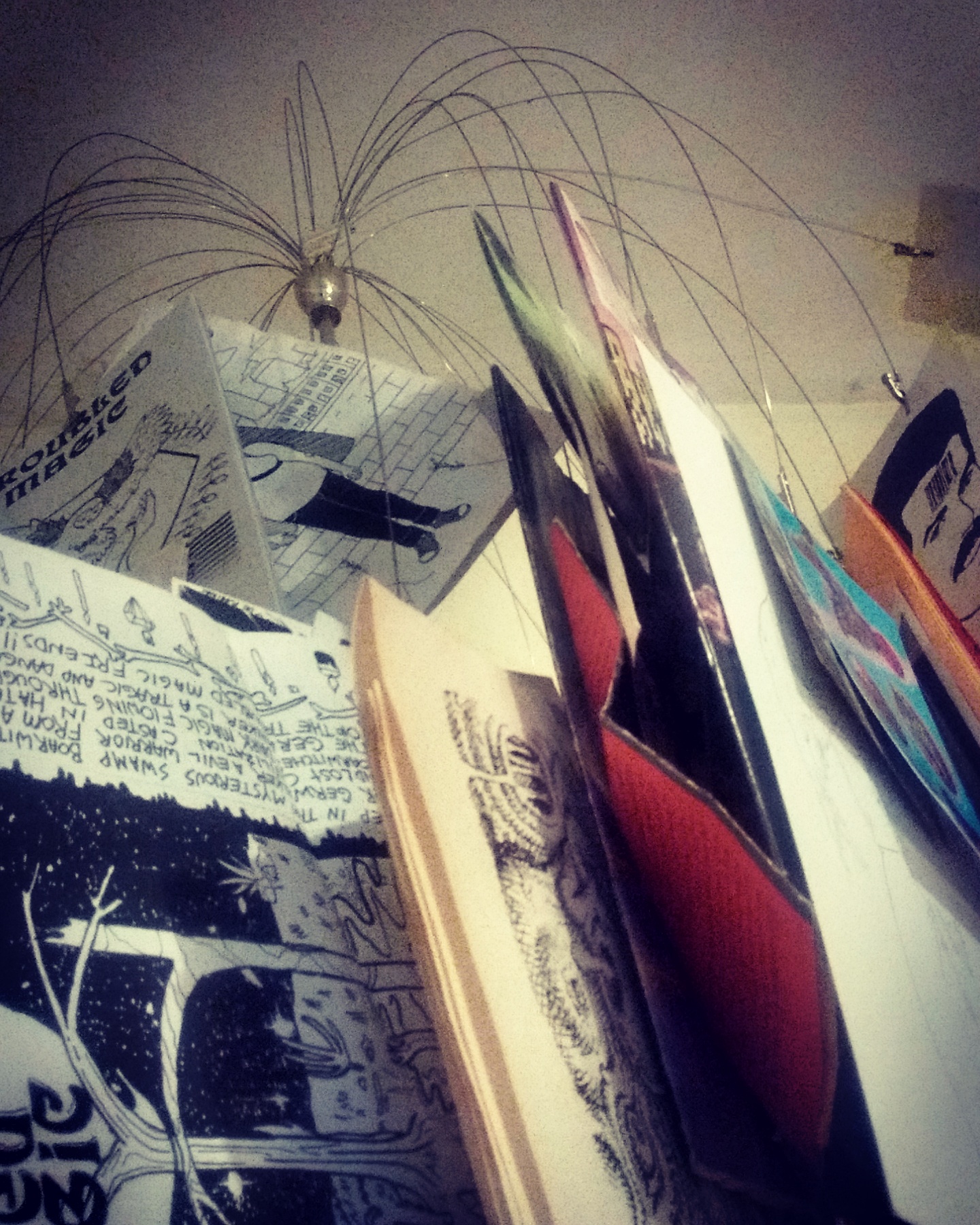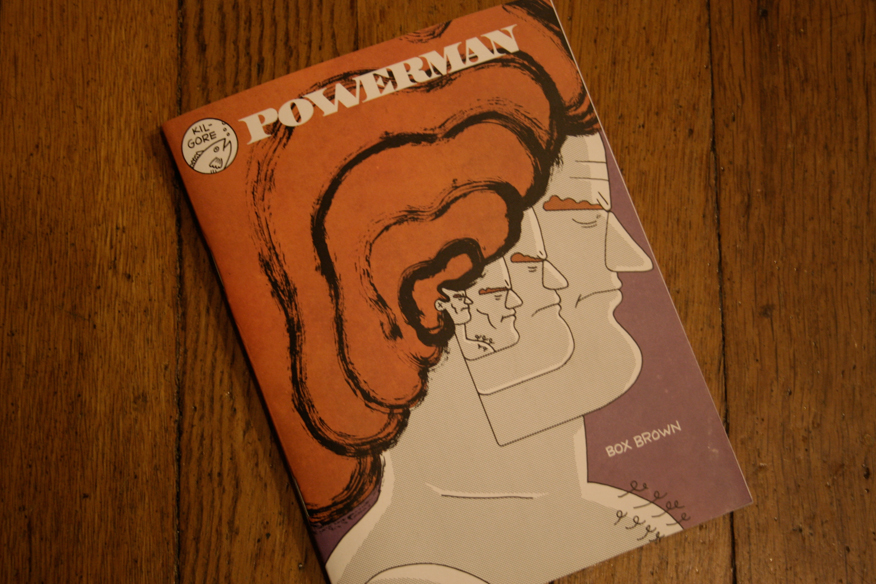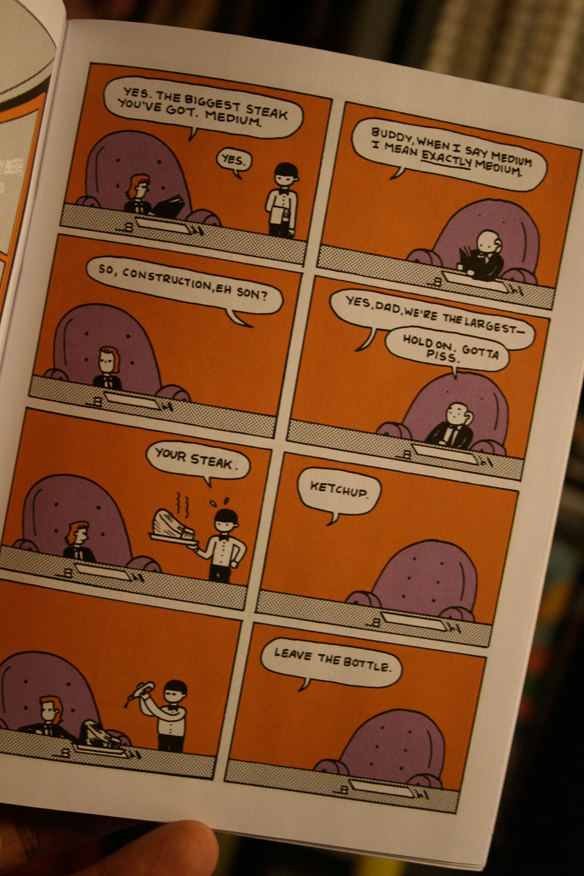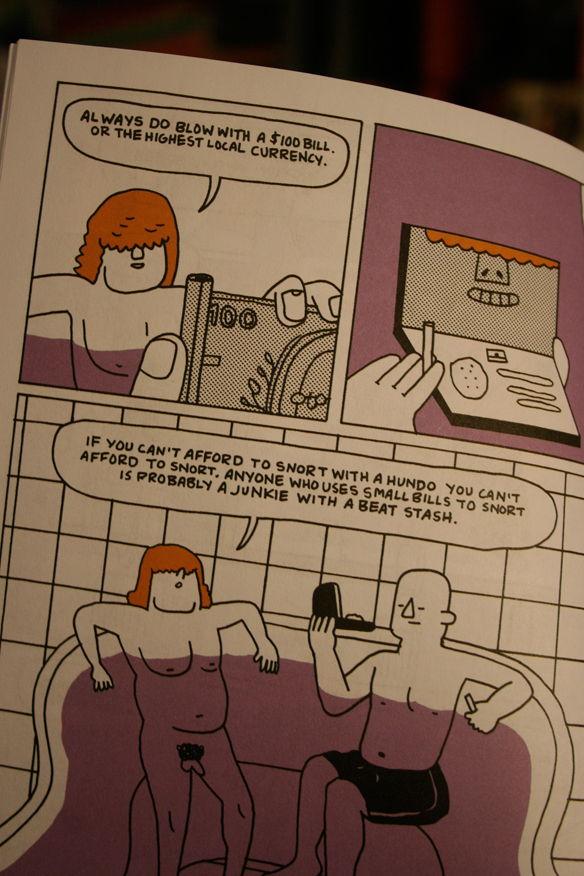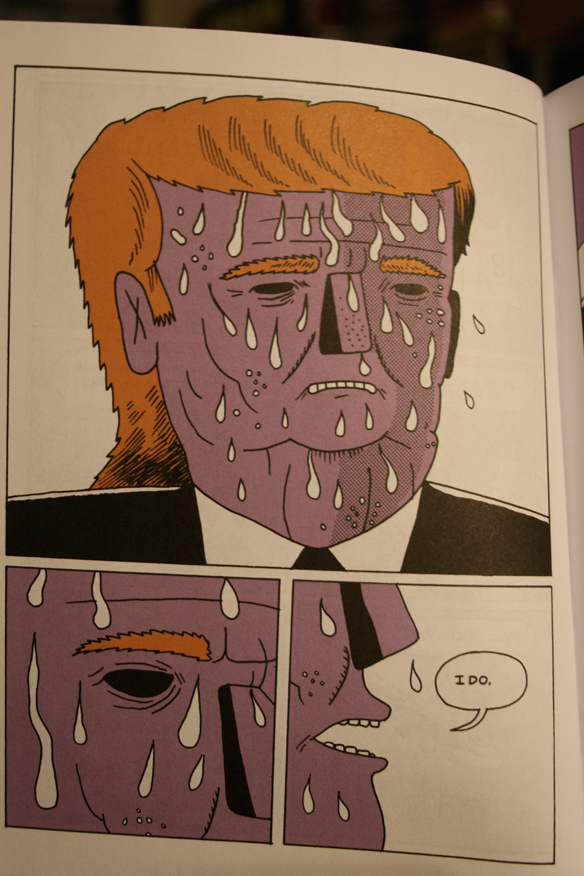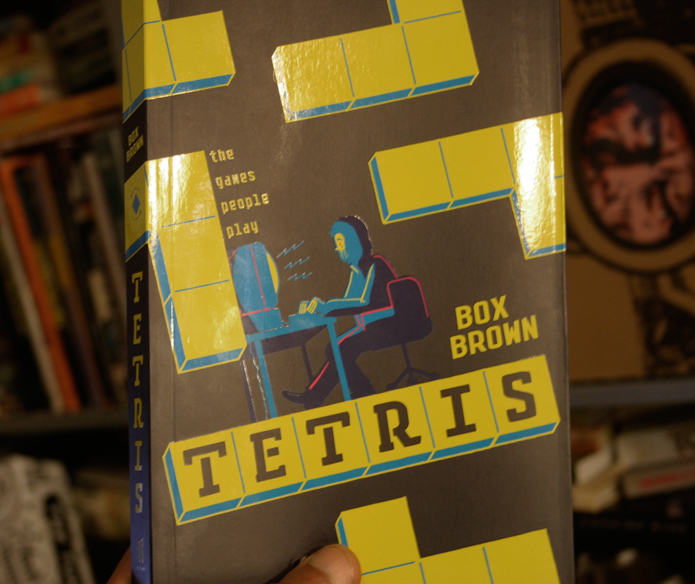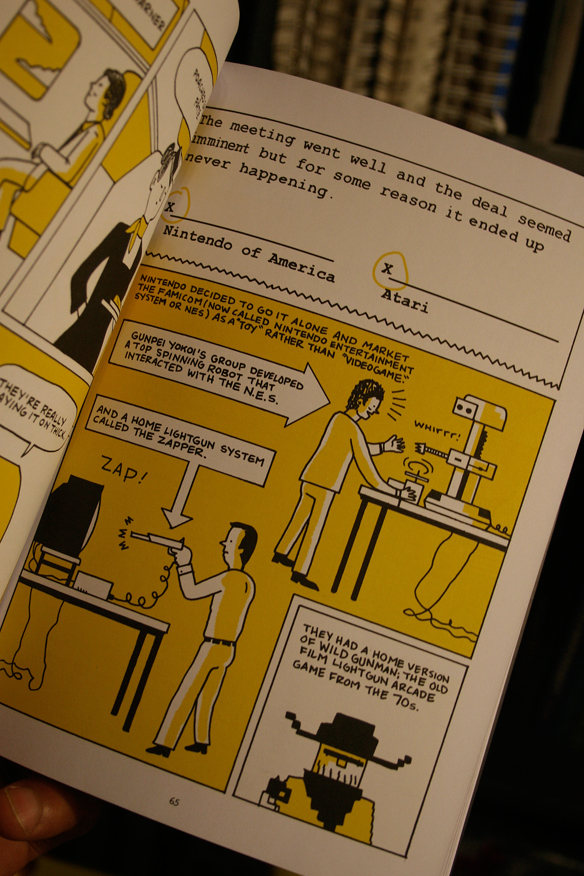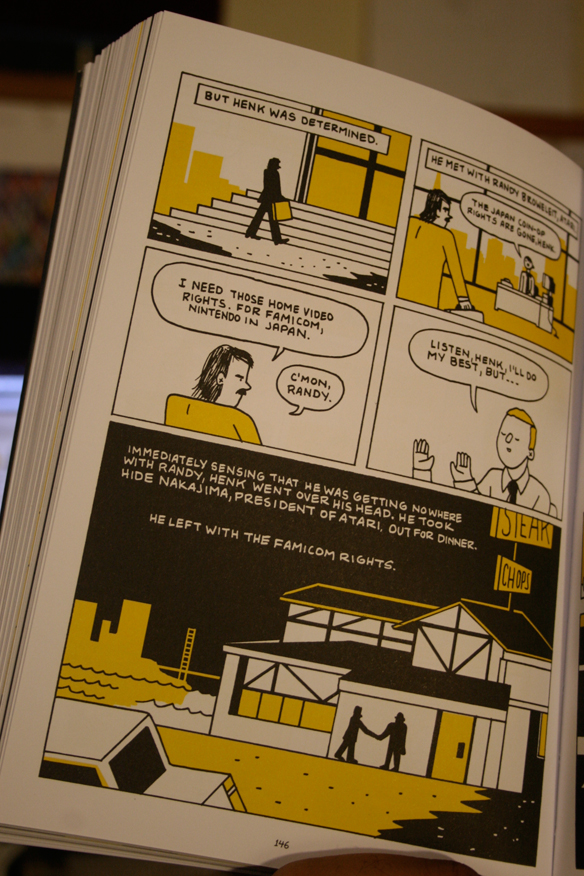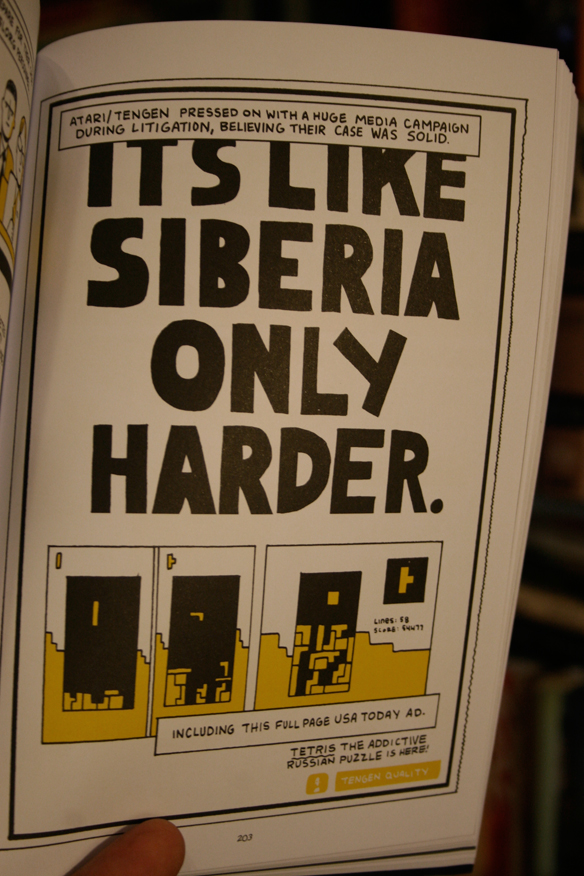BIO: Box Brown is an Ignatz Award-winning cartoonist, illustrator, and comic publisher from Philadelphia. His book, Andre the Giant: Life and Legend was released in 2014 and spent three weeks on the NYT bestsellers list. He launched the independent comics publishing house Retrofit Comics in 2011.
AG: Confirm, deny, or dodge in regards to Powerman: This is at all an allegorical story?
BB: hahaha, IDK really. I made it about a year ago. I had no clue we'd be in this situation now.
